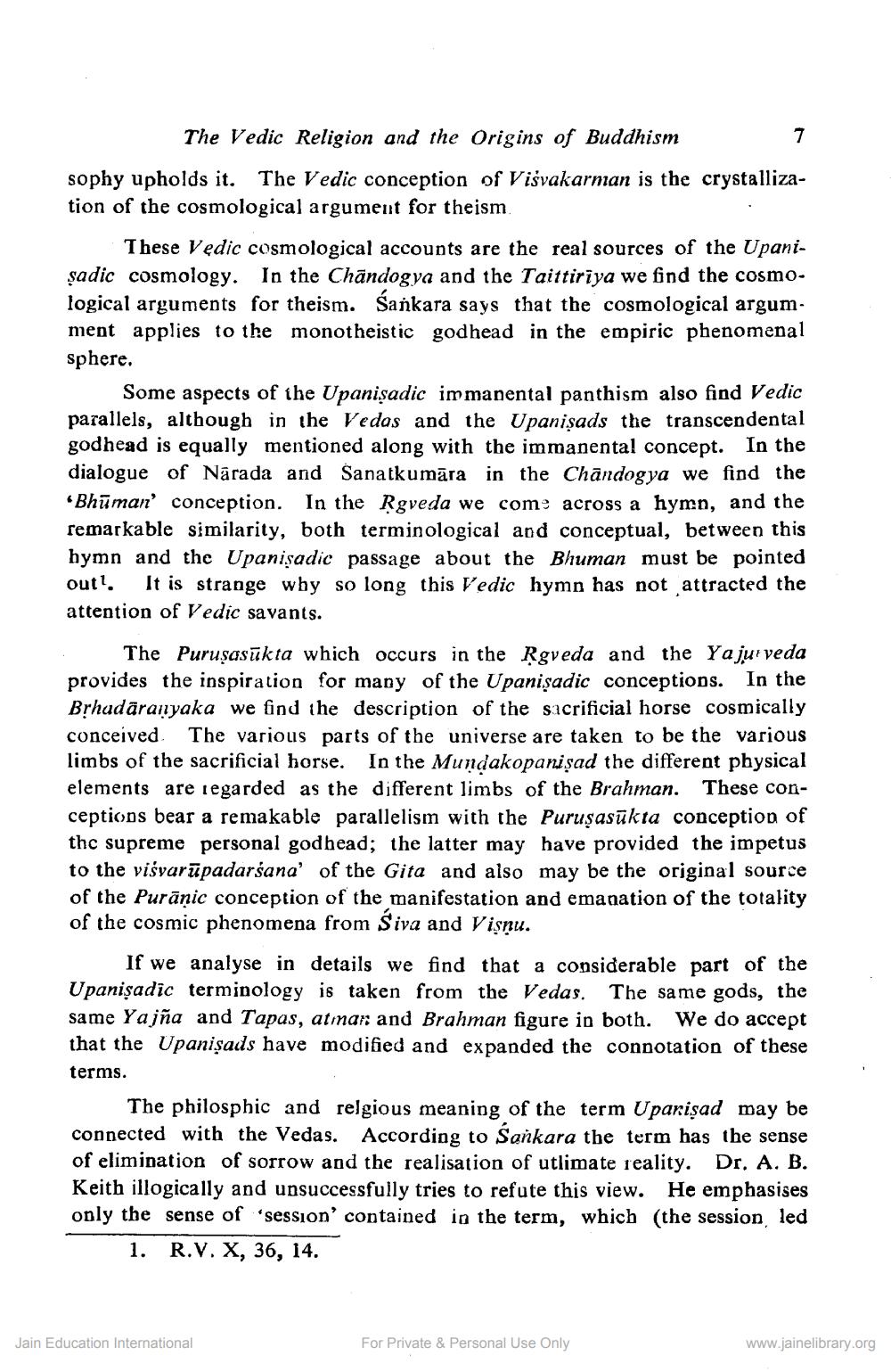________________
The Vedic Religion and the Origins of Buddhism
sophy upholds it. The Vedic conception of Visvakarman is the crystallization of the cosmological argument for theism.
These Vedic cosmological accounts are the real sources of the Upanişadic cosmology. In the Chandogya and the Taittiriya we find the cosmological arguments for theism. Śankara says that the cosmological argumment applies to the monotheistic godhead in the empiric phenomenal sphere.
7
Some aspects of the Upanisadic immanental panthism also find Vedic parallels, although in the Vedas and the Upanisads the transcendental godhead is equally mentioned along with the immanental concept. In the dialogue of Narada and Sanatkumāra in the Chandogya we find the 'Bhuman' conception. In the Rgveda we come across a hymn, and the remarkable similarity, both terminological and conceptual, between this hymn and the Upanisadic passage about the Bhuman must be pointed out1. It is strange why so long this Vedic hymn has not attracted the attention of Vedic savants.
The Puruṣasukta which occurs in the Ṛgveda and the Yajurveda provides the inspiration for many of the Upanisadic conceptions. In the Bṛhadaranyaka we find the description of the sacrificial horse cosmically conceived. The various parts of the universe are taken to be the various limbs of the sacrificial horse. In the Mundakopaniṣad the different physical elements are regarded as the different limbs of the Brahman. These conceptions bear a remakable parallelism with the Puruṣasukta conception of the supreme personal godhead; the latter may have provided the impetus to the viśvarupadarsana' of the Gita and also may be the original source of the Puranic conception of the manifestation and emanation of the totality of the cosmic phenomena from Śiva and Visnu.
If we analyse in details we find that a considerable part of the Upanisadic terminology is taken from the Vedas. The same gods, the same Yajña and Tapas, atman and Brahman figure in both. We do accept that the Upanisads have modified and expanded the connotation of these
terms.
The philosphic and relgious meaning of the term Uparisad may be connected with the Vedas. According to Sankara the term has the sense of elimination of sorrow and the realisation of utlimate reality. Dr. A. B. Keith illogically and unsuccessfully tries to refute this view. He emphasises only the sense of 'session' contained in the term, which (the session, led
1. R.V. X, 36, 14.
Jain Education International
For Private & Personal Use Only
www.jainelibrary.org




